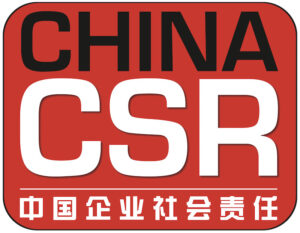Greenpeace released new evidence that it claims shows sportswear companies like U.S.-based Nike and China-based Li Ning are contributing to Chinese river pollution.
The report includes Adidas, H&M, Puma, Lacoste, Abercrombie & Fitch, and Youngor, and claims that the suppliers of these major clothing brands are polluting rivers part of the Yangtze and Pearl River deltas in China. Greenpeace's Dirty Laundry report, researched and investigated over a one-year period, allegedly reveals that hazardous chemicals with hormone-disrupting properties have been found in wastewater samples from two factory complexes that supply these and other global fashion brands.
"Our tests of the wastewater found toxic chemicals that have no place in our natural environment," stated Greenpeace Toxics Campaigner Li Yifang. "As the world's factory, China is the production base for many global and domestic fashion brands. Now we have scientific evidence confirming that hazardous chemicals are being released into China's rivers to make clothes worn by people around the globe."
Greenpeace is challenging the clothing brands named in the report to eliminate the use and discharge of hazardous chemicals from their supply chain and products. "We are calling on trendsetting brands that have major influence on their supply chains, such as Adidas, Nike and Li Ning, to take the lead," Li stated. "These brands have the ability and responsibility to work with their suppliers to provide products that do not irrevocably damage the environment and public health."
Laboratory testing found a cocktail of hazardous chemicals, including nonylphenols and perfluorinated chemicals, in wastewater samples from the Youngor Textile Complex on the Yangtze River Delta and Well Dyeing Factory on the Pearl River Delta.
Alkylphenols and PFCs have hormone-disrupting properties and can be hazardous even at low levels. They are persistent in the environment, can move up through the food chain, and can travel great distances via air and water currents. Because of this, alkylphenols and some PFCs are restricted by the EU and international conventions. Nevertheless, they are still widely used by the textiles industry in developing countries such as China, where they have yet to be restricted.
In answer to the criticism, Greenpeace says some of the companies have responded to the report. For example, a Nike representative said, in part: "In answer to the specifics outlined in your letter, Nike, Inc. currently sources from two factories in the Youngor Group Co, Ningbo Youngor Knitting and Underwear and Ningbo Youngor Sportswear in Zhejiang Province. These factories are cut and sew facilities. They do not have manufacturing processes that include use of the chemicals called out in your letter. In addition, neither factory sources materials from the Youngor Dye House. Both factories feed only sanitary wastewater into the Water Treatment Facility."

